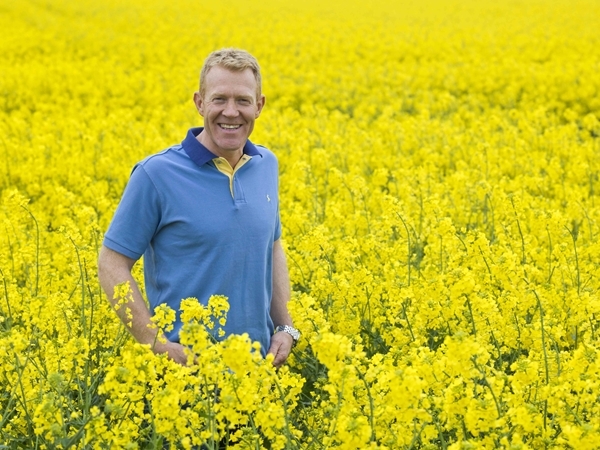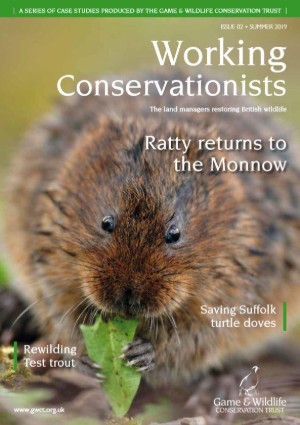
AN inspirational set of working conservationists across the UK who have demonstrated high levels of success in increasing wildlife on their land are celebrated in a new GWCT publication.
In his foreword to Working Conservationists: The land managers restoring British wildlife, rural television presenter Adam Henson said: “These uplifting stories remind us of the real opportunity for British farmers to lead the world in producing the food and environmental goods we urgently need.”
The collection of eight case studies aims to raise awareness of the many working conservationists across the UK whose stories often go ‘untold’, their efforts unrecognised. It shows how private land managers are best placed to deliver vital biodiversity gains through their expertise and devotion to the job.
Among these is Rob Denny who recruited an army of volunteers, including 200 farmers and members of the local community, to restore much-admired water voles to the Monnow river as well as 70km of riverbank.
Graham Denny (no relation to Rob) has made his farm a retreat for our endangered turtle doves, Richard Wills is leading a range of pioneering projects for woodcock and trout, Exmoor birds are thriving again thanks to land managers Darren Ninnis and Pete Stanbury, while Geoff Eyre has implemented conservation measures to restore the UK’s precious uplands.
Former Shooting Times editor Joe Dimbleby, who wrote the new 40-page booklet, spoke about these incredible stories during the launch at Game Fair this weekend.
“All those featured are champions of conservation,” he said.
“They are committed for the long term, know intimately their bit of countryside and are experts in practical management, which can deliver key habitats alongside food production.
“Their passion drives them to put forward their own money and countless hours of their time into looking after wildlife. The GWCT has always recognised this, which is why it partners with land managers and offers practical advice based on science tested in the field.”
Mr Henson also praised the GWCT’s approach, adding: “I am a great supporter of the GWCT whose guidance to farmers and research into developing measures for wildlife that fit with the practical realities of farming is much-needed.”
“Seventy-five percent of the UK’s land mass is farmed so if we are to reverse biodiversity losses wildlife-friendly farmers like those in the new edition of Working Conservationists will play a central role.”
Mr Henson also pointed out the need for improved government funding schemes. He commented: “Agri-environment schemes must be simple enough to manage to encourage farmers to take part. Most importantly, conservation measures must be adequately funded and payment received on time.”
To read about these conservation success stories, a limited number of copies are available online here for £3.95.
About Working Conservationists:
Graham Denny – Suffolk
Richard Wills – Hampshire
John Riley – Aberdeenshire
Geoff Eyre – Derbyshire
Terry Mills – Ceredigion
Darren Ninnis and Pete Stanbury – Exmoor
Rob Denny – Herefordshire/Monmouthshire
Ant Griffith – Denbighshire

Our second issue of Working Conservationists, this 40-page A4-size colour publication features eight case studies produced by the GWCT, focusing on the land managers who are helping to save British wildlife.
Buy Now - £3.95 >
eBook - Buy Now - £1.99 >
Notes to editors
The Game & Wildlife Conservation Trust – providing research-led conservation for a thriving countryside. The GWCT is an independent wildlife conservation charity which has carried out scientific research into Britain’s game and wildlife since the 1930s. We advise farmers and landowners on improving wildlife habitats. We employ more than 60 post-doctoral scientists and other research staff with expertise in areas such as birds, insects, mammals, farming, fish and statistics. We undertake our own research as well as projects funded by contract and grant-aid from government and private bodies.
For information, contact:
Eleanor Williams
Telephone: 07592 025476
Email: press@gwct.org.uk